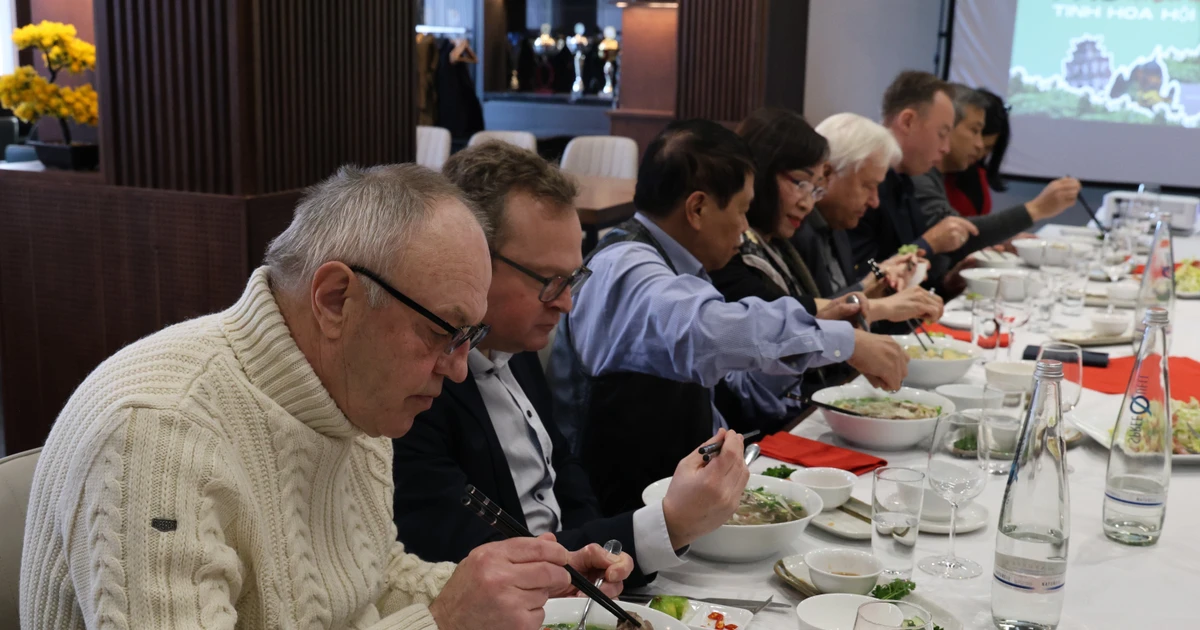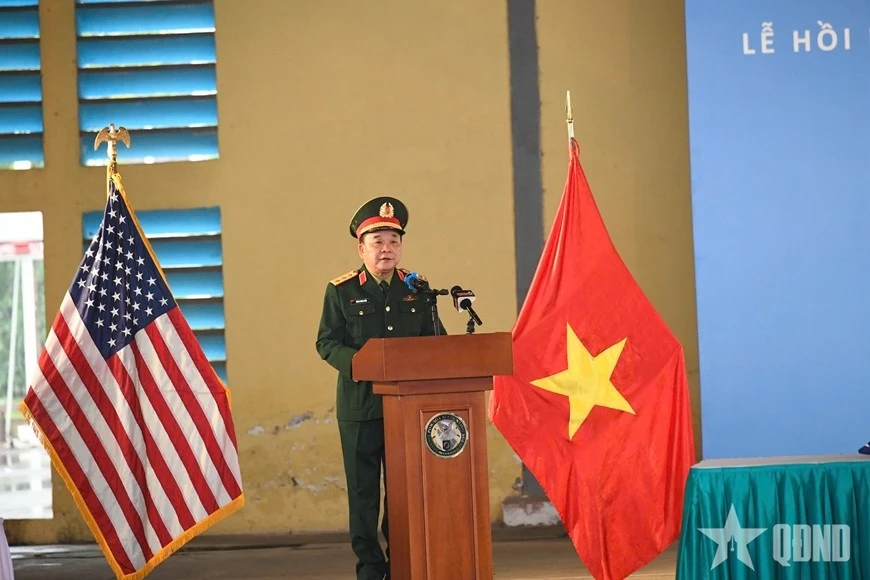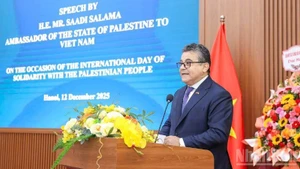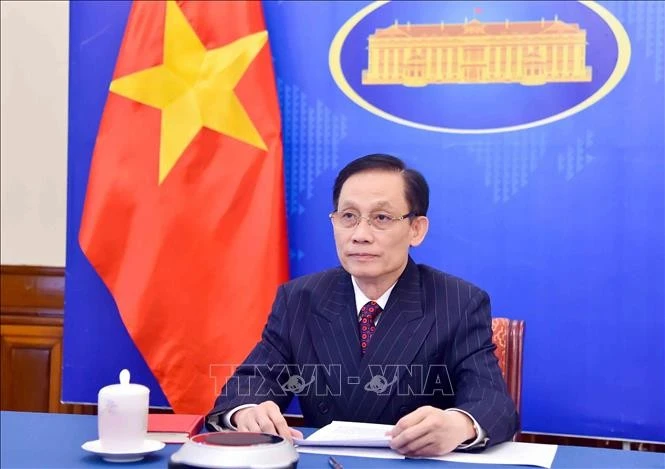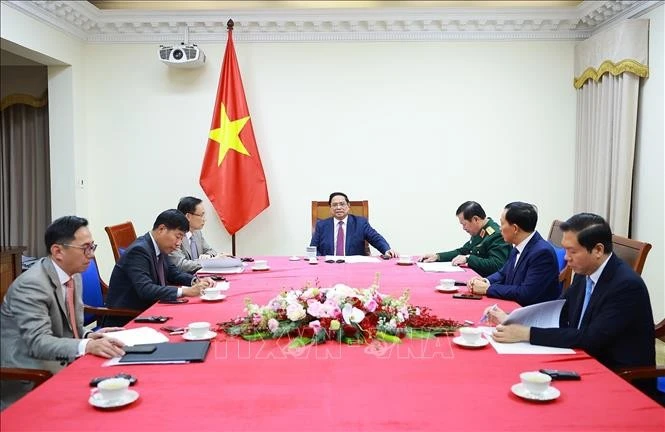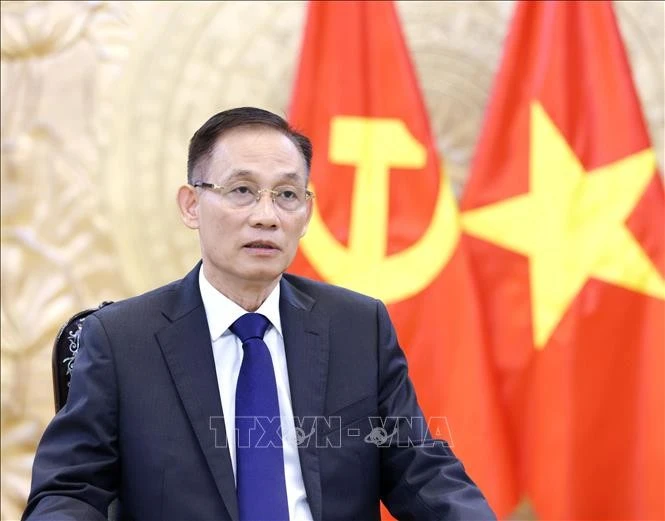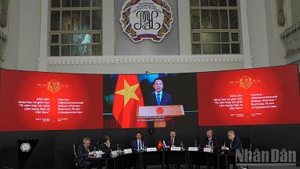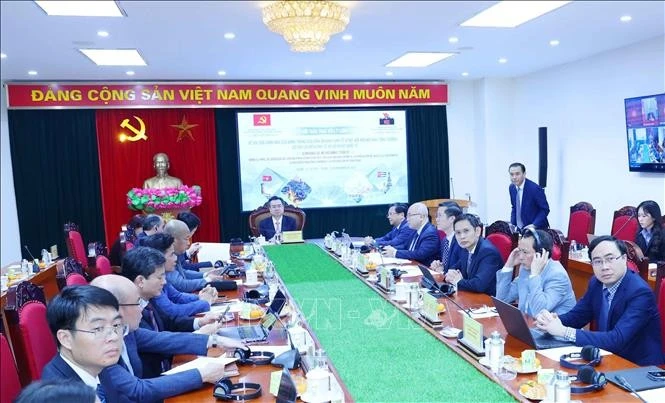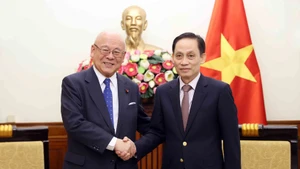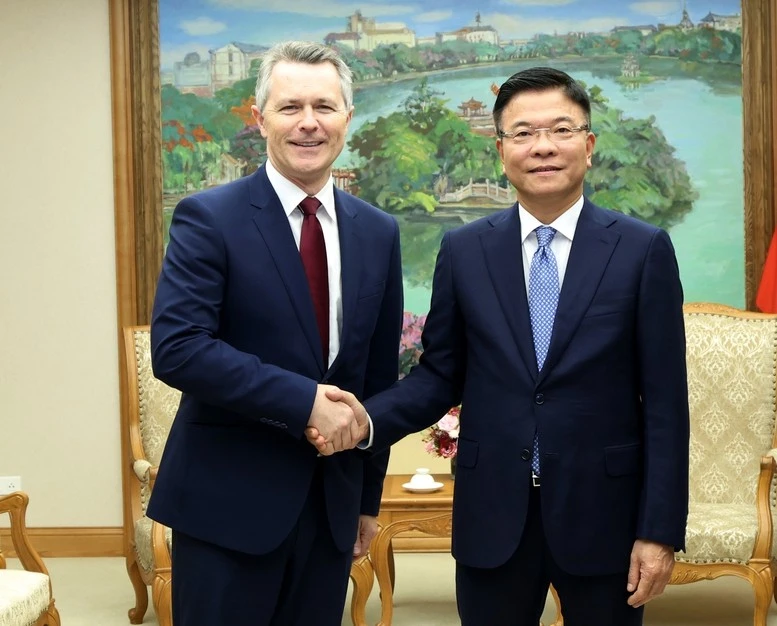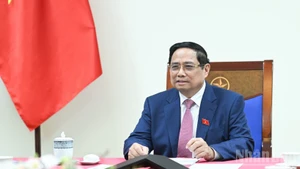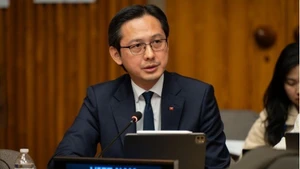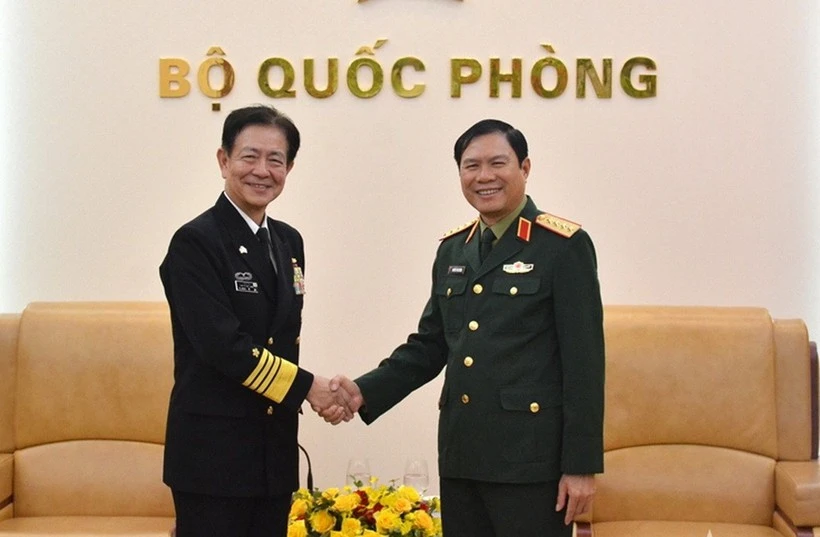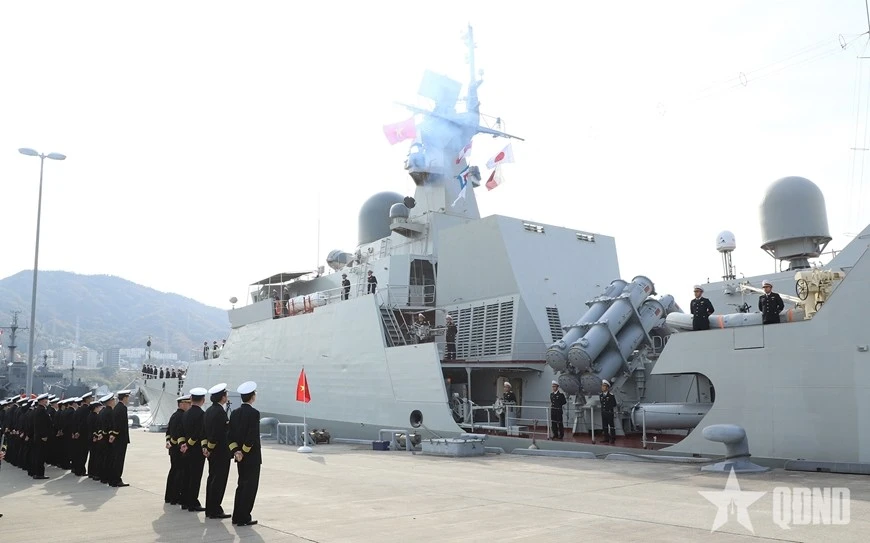A Victory for Self-Determination and National Sovereignty
Pallab Sengupta, Member of the Politburo, in charge of foreign affairs of the Communist Party of India, President of the All India Peace and Solidarity Organisation (AIPSO), President of the World Peace Council, holds a special affection for Vietnam.
Throughout his years of revolutionary engagement, regardless of his position, Pallab Sengupta has consistently supported Vietnam. Notably, during his time as a leader of international student and youth organisations, he made tireless efforts to support Vietnamese people in their cause of national defence and reconstruction.
Speaking to Nhan Dan Newspaper about the significance of the victory in the Spring 1975 General Offensive and Uprising, he stressed that 2025 marks the 50th anniversary of the Liberation of South Vietnam and National Reunification (April 30, 1975 –2025). It is a significant milestone in history and an opportunity to reflect Vietnam’s resilience, solidarity and progress over the past five decades, realising President Ho Chi Minh’s dream of a unified Vietnam.
According to Pallab Sengupta, the April 30 victory by the Vietnamese army and people signalled the end of a long and arduous struggle for independence and national reunification. This triumph marked the culmination of decades of resistance against colonial and imperialist forces, led by the determination and sacrifices of the Vietnamese people under the leadership of the Communist Party of Vietnam. This historic event not only reshaped Vietnam but also left a lasting impact on global history, symbolising the triumph of self-determination and national sovereignty.
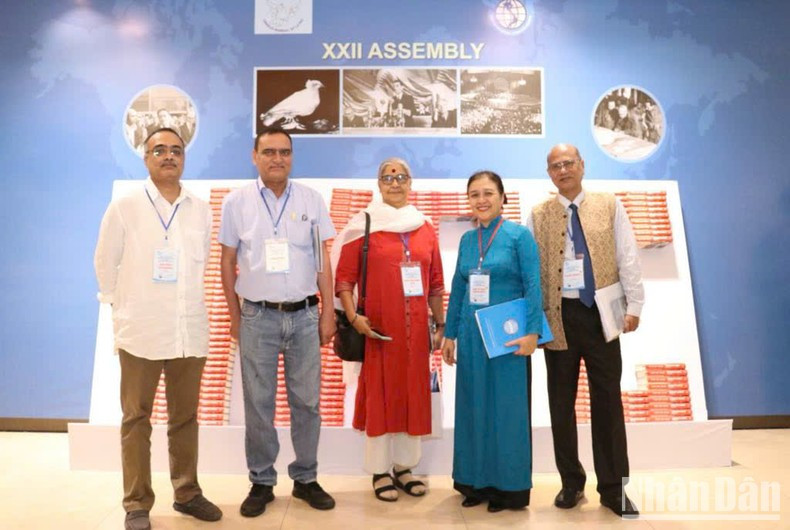 |
| Mr Pallab Sengupta (furthest to the right) posted a photo with delegates attending the 22nd Congress of the World Peace Council held in November 2022 in Hanoi. |
Assessing Vietnam’s development 50 years after reunification and independence, Pallab Sengupta stated that since unification, Vietnam has made remarkable strides in rebuilding and developing the country. It has transformed from a war-ravaged land into one of Southeast Asia’s fastest-growing economies. With significant economic reforms, especially the Doi Moi (Renovation) policy introduced by the Communist Party of Vietnam in 1986, the country embraced market-oriented reforms, boosted rapid industrialisation, modernisation, and global integration. Today, Vietnam is recognised for its thriving industries, solid infrastructure, and impressive achievements in technology, education, and healthcare.
In addition to economic growth, Vietnam has made notable progress in promoting peace and diplomatic relations. The country has built strong partnerships with nations around the world and has become an active and respected member of the international community. It hosted global events, participated in peacekeeping missions, and made contributions to regional stability, highlighting Vietnam’s role as a responsible and influential nation on the international stage.
"Commemorating the 50th anniversary of National Reunification is not only a chance to express national pride but also an occasion to honour those who contributed to Vietnam’s independence. The sacrifices of countless soldiers, leaders, and citizens who tirelessly fought for national unity will always be remembered. This celebration is also an opportunity to educate younger generations about the significance of this victory and the importance of preserving national sovereignty and unity,” Pallab Sengupta emphasised.
Speaking about the solidarity and support movements of Indian students and citizens during Vietnam’s struggle for independence, Pallab Sengupta shared: The India-Vietnam relationship has been especially friendly since Prime Minister Nehru and President Ho Chi Minh laid its foundations. The close ties between the two countries are rooted in their shared historical struggle for liberation from foreign domination and national independence. To carry forward that legacy, Indian universities and intellectual circles saw students organising demonstrations and awareness campaigns opposing imperialist aggression and supporting Vietnam’s right to self-determination.
The slogans “My name, Your name – Vietnam, Vietnam” and “Ho Chi Minh – We shall fight, We shall win” were widely popular at the time, and every educational institution became a centre of solidarity for Vietnam. This solidarity not only reflected India’s historic commitment to anti-colonial struggles but also symbolised the profound friendship between the two countries. Even today, India-Vietnam relations continue to thrive, based on mutual respect and a shared history of struggle against colonialism and imperialism.
In these historic April days, as Vietnam prepares to solemnly commemorate the 50th anniversary of the Liberation of the South and National Reunification with a series of parades, marches, exhibitions, and educational activities nationwide, these efforts not only honour the past but also inspire a vision for a prosperous future. The spirit of solidarity and resilience that defined the liberation struggle continues to guide Vietnam towards even greater achievements in the 21st century.
The 50th anniversary of the liberation of southern Vietnam and national reunification is a significant occasion that reinforces Vietnam’s journey of perseverance, development, and peace. It stands as a testament to the indomitable will of the Vietnamese people, who turned difficulty into progress. As Vietnam looks ahead, it remains committed to growth, harmony, and the enduring values of independence and unity that define its history and shape its future.
—Pallab Sengupta, Politburo Member, in charge of External Relations of the Communist Party of India
Powerful impulse for revolutionary movements worldwide
That is the affirmation of Fredesmán Turró González, former Ambassador of Cuba to Vietnam and Vice President of the Cuba–Vietnam Friendship Association.
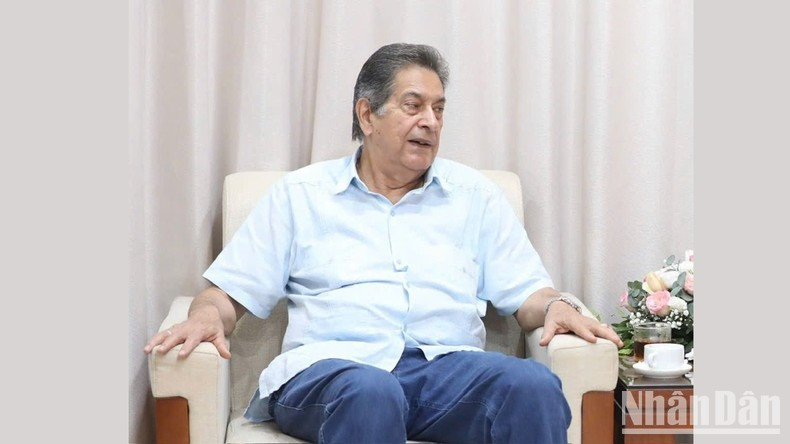 |
| Fredesmán Turró González, former Ambassador of Cuba to Vietnam and Vice President of the Cuba–Vietnam Friendship Association. |
Fredesmán Turró González is one of the first ten outstanding Cuban students sent to study in Vietnam in 1968. He studied the Vietnamese language and culture at Hanoi University. During his time there, he was affectionately given the Vietnamese name "Comrade Hung" by his teachers — a name that stayed with him throughout his 25 years of living and working in Vietnam, initially as a translator for the Cuban Embassy and later as Ambassador of Cuba to Vietnam.
He shared that while studying in Vietnam, in May 1969, he had the honour of attending a rally commemorating the 15th anniversary of the Dien Bien Phu Victory and meeting President Ho Chi Minh. He described this as an unforgettable memory.
As someone who directly witnessed the harsh and challenging moments of Vietnam’s resistance war against the United States, Fredesmán Turró González deeply understands the significance of the Victory of 30 April. He believes this victory marks one of the most glorious and meaningful chapters in Vietnamese history. It vividly symbolises the power of great national unity and the unyielding will of an entire people in their struggle for independence and national sovereignty, under the wise leadership of the Communist Party of Vietnam, and following the revered teachings of President Ho Chi Minh.
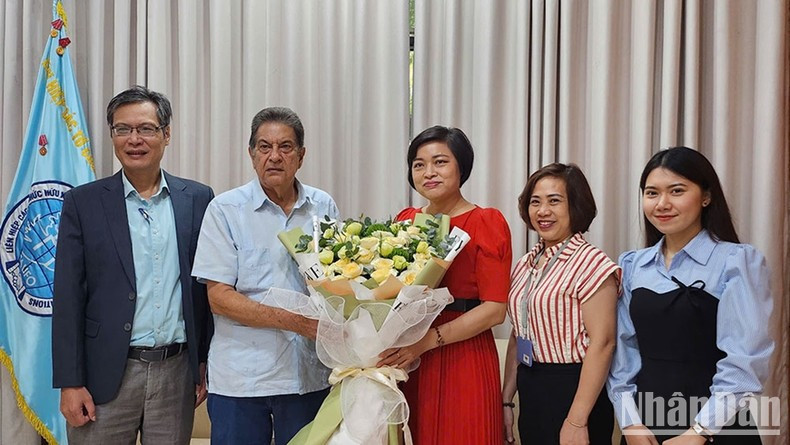 |
| Fredesmán Turró González visited and worked with the Hanoi Union of Friendship Organisation on his return to Vietnam in 2024 |
According to Fredesmán Turró González, the Victory of April 30 by the Vietnamese army and people is not only a historic milestone but also continues to be a tremendous source of encouragement for people around the world in their struggles for independence and sovereignty. It has also provided a powerful impulse for revolutionary movements globally.
This victory demonstrates that a small and impoverished nation, once determined to fight for its independence and sovereignty, can overcome any enemy. It is also a testament to the vital importance of great national unity, the necessity of a harmonious combination between military struggle and political-diplomatic efforts, and the promotion of international solidarity movements.

